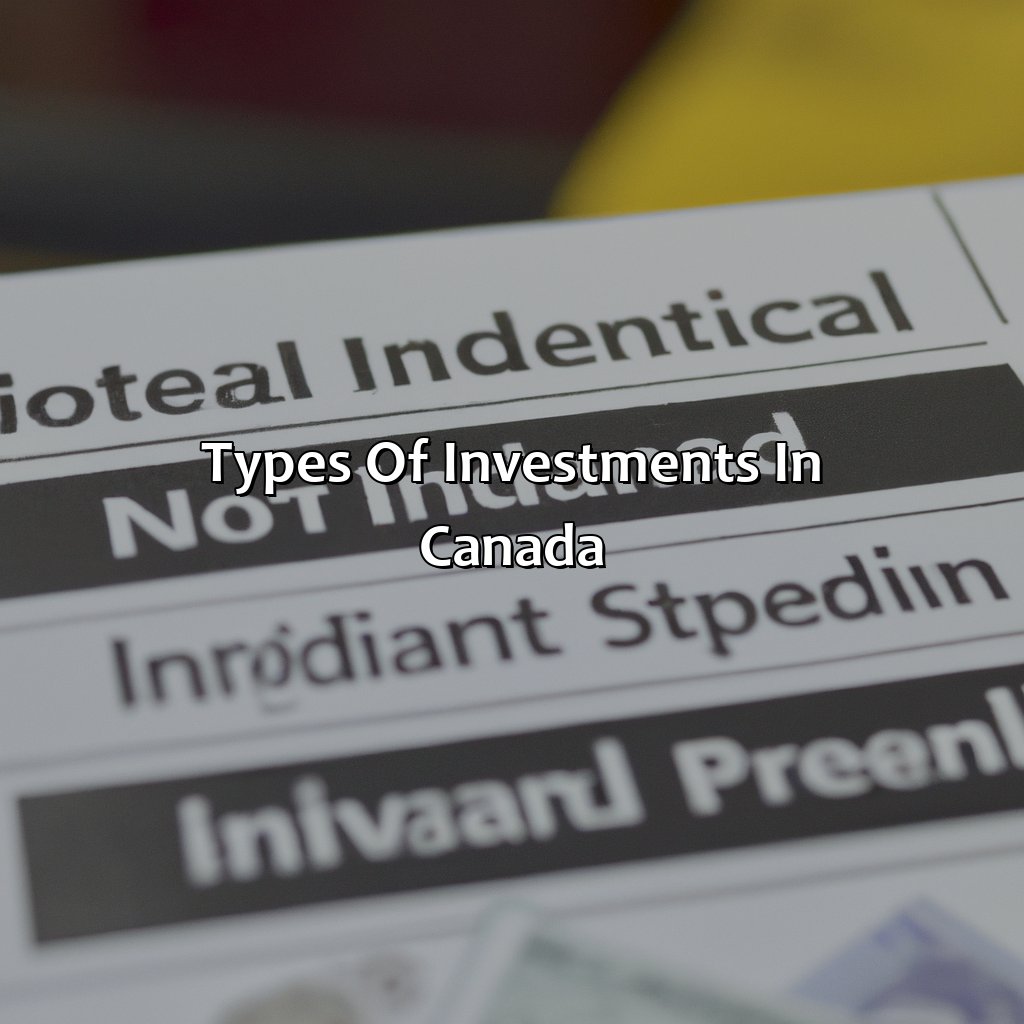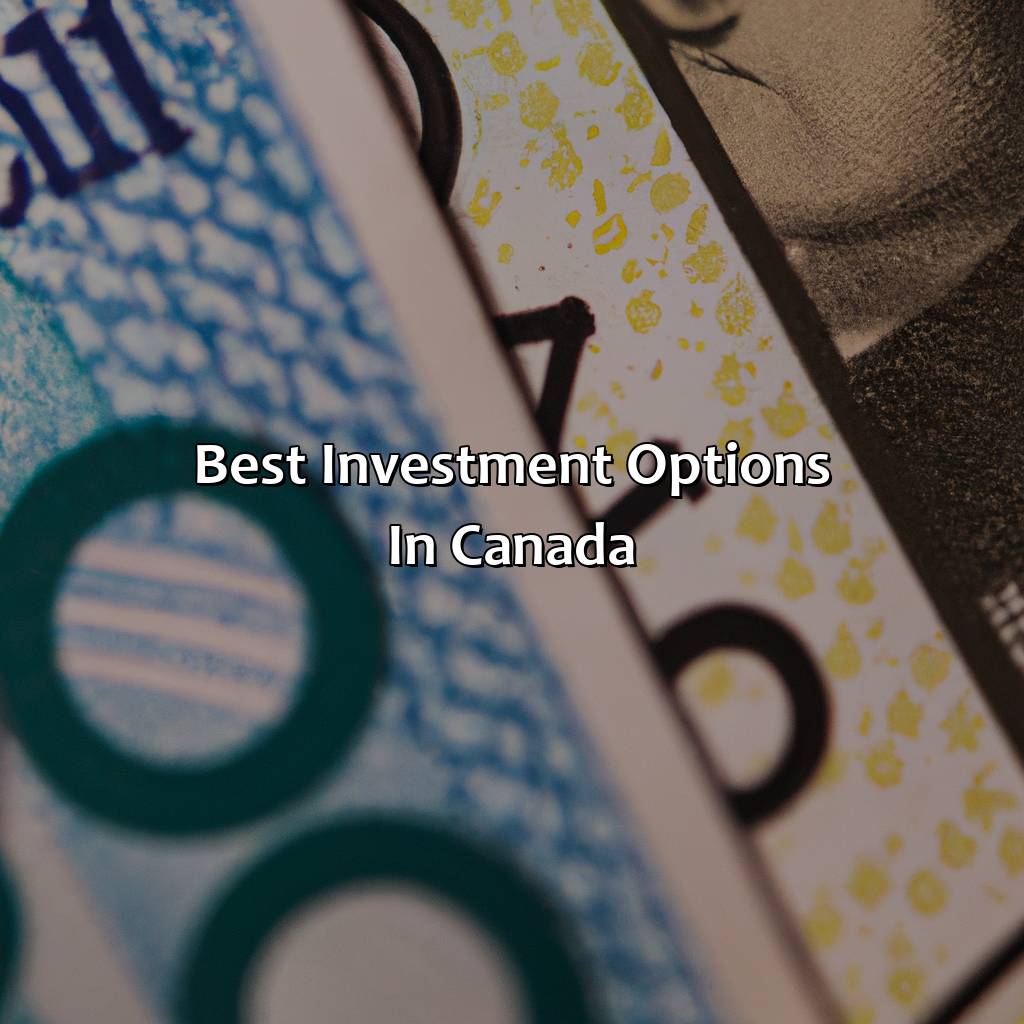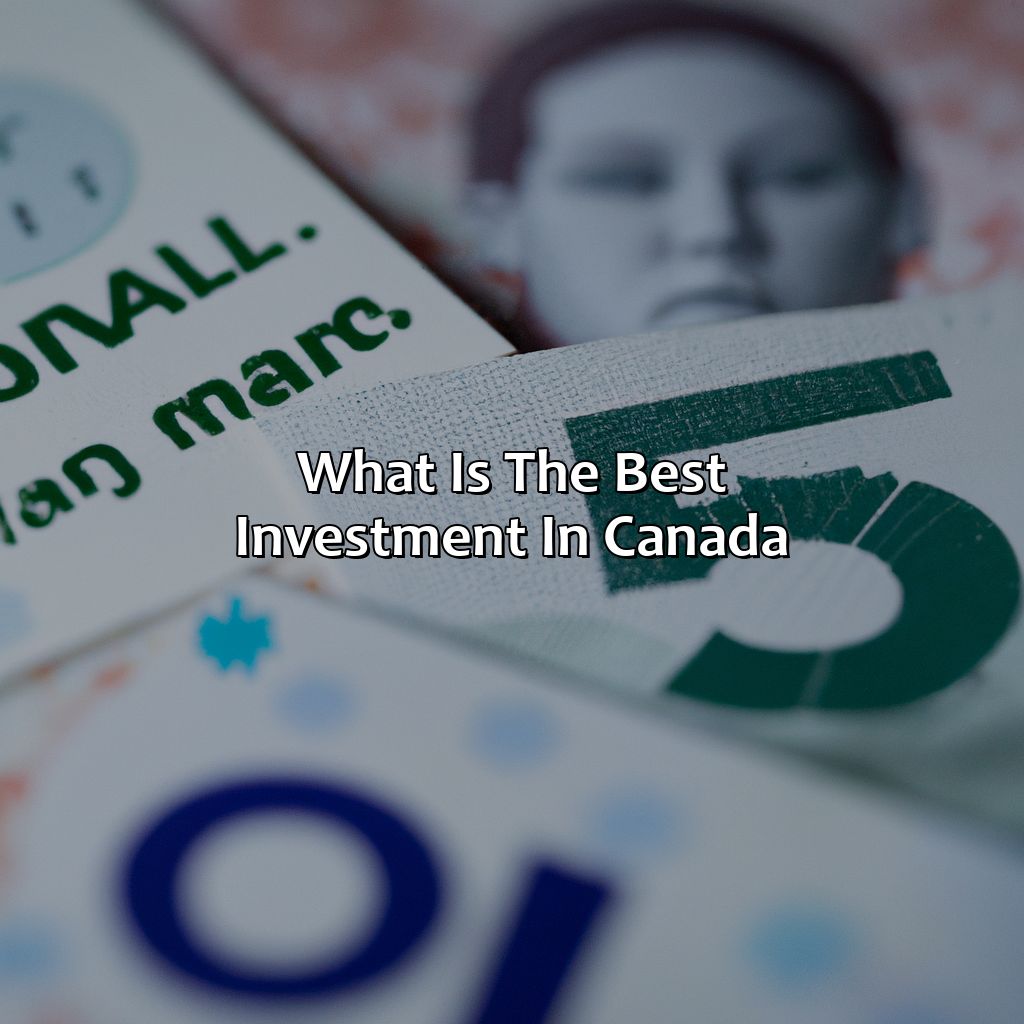What Is The Best Investment In Canada?
Key Takeaway:
- Different investments have different levels of risk and potential returns. Investors should consider their risk appetite, time horizon, and fees before making an investment decision.
- Equity funds, Real Estate Investment Trusts (REITs), Exchange-traded Funds (ETFs), and High-Interest Savings Accounts are popular investment options in Canada.
- Equity funds are a good option for long-term investors who are willing to take risks for potentially high returns. REITs provide a stable income stream for investors seeking steady cash flow. ETFs offer the diversification of mutual funds with lower fees, making them a popular choice for many investors. High-Interest Savings Accounts are a low-risk option for short-term savings and emergency funds.
Are you looking for the best investment route in Canada? Are you concerned about financial security for your future? We have all the information you need to determine what is the best option for you. You can make an informed decision with our guide on the best investments to make in Canada.
Types of Investments in Canada
Investment Options Available in Canada
There are various investment options available in Canada that can help you grow your wealth. These options range from low-risk to high-risk investments and can provide great returns over time.
| Investment Type | Description |
|---|---|
| Savings Account | A bank account that pays interest on your deposits |
| GIC | A fixed-term investment that pays a guaranteed rate of return |
| Bonds | Issued by governments or corporations, they pay a fixed income |
| Stocks | Purchasing shares in a company, which can provide higher returns |
| Mutual Funds | A professionally managed portfolio of stocks, bonds, or other investments |
| ETFs | A low-cost investment fund that tracks a specific index or industry |
Apart from these investments, there are also alternative investments such as real estate, private equity, and commodities. However, these investments usually require a higher level of capital and are riskier.
It is important to note that each investment option carries its own level of risk and return. It’s crucial to invest in a balanced portfolio that suits your risk tolerance and investment goals to ensure financial stability.
Canada’s investment landscape has evolved over time, and new investment products and services are coming up every day. It is essential to do thorough research and seek professional guidance before investing.

Image credits: retiregenz.com by Yuval Arnold
Factors to Consider when Choosing an Investment
When evaluating investment possibilities, there are many variables to consider. Understanding your financial objectives and risk tolerance are crucial. Next, one must think about the type of investment, expected returns, and the time frame for investment. Additionally, the economic climate, tax implications, and background research on particular investment products should be taken into account.
It is reasonable to look at a variety of investment alternatives before making a choice. Make sure to investigate several options, including stocks, bonds, mutual funds, and real estate. Keep in mind the risks and benefits connected with each type of investment. Furthermore, consult with a financial advisor or analyst to determine the best investment options curated to your needs and goals.
While there are no guarantees in the market, a well-researched investment can potentially provide significant returns. However, before investing in any choice, it’s essential to read all of the documents and policies, conduct background research on the company, and have a clear comprehension of the investment’s risks and benefits.
When it comes to investing in Canada, a diversified portfolio that includes domestic and foreign stocks, bonds, and funds may be a sound option. Additionally, bonds may provide greater stability, while stocks provide a higher potential for growth over time. Understanding your financial objectives and risk tolerance is essential to choose the best investment in Canada.

Image credits: retiregenz.com by James Woodhock
Best Investment Options in Canada
Investing in Canada can be overwhelming, especially considering the various options available. When it comes to making profitable investments, it’s essential to have clarity to make informed decisions that align with one’s financial goals. Here are five Best Investment Options in Canada:
- Real Estate: One of the best investment options in Canada due to the country’s stable real estate market.
- Stocks and Shares: With Canada’s robust economy, investing in shares of companies listed on the Toronto Stock Exchange can yield significant returns.
- Bonds: Government bonds offer steady returns, while corporate bonds provide higher yields but with higher risks.
- Mutual Funds: Good for investors who want to diversify their portfolio.
- Exchange-Traded Funds (ETFs): A low-cost way of investing in a diversified portfolio of assets.
It’s crucial to note that other investment options, such as commodities, cryptocurrencies, and precious metals, carry significant risks that require careful consideration.
When it comes to making investments, it’s essential to consider individual goals, risk tolerance, and investment horizon. The uniqueness of each investor’s financial situation gives rise to the need for a personalized approach to investment.
To make the best investment decisions, consider seeking the services of a professional financial advisor. With their expertise and experience, you can make informed decisions tailored to your unique investment needs.

Image credits: retiregenz.com by Yuval Jones
Five Facts About the Best Investment in Canada:
- ✅ Real estate is one of the best investments in Canada, with steady appreciation in value over time. (Source: MoneySense)
- ✅ Low-fee index funds and ETFs are ideal for beginner investors looking for a low-risk investment strategy. (Source: The Balance)
- ✅ The Canadian government offers a Tax-Free Savings Account (TFSA) as a tax-sheltered investment option with no minimum age requirements. (Source: Canada.ca)
- ✅ Investing in blue-chip companies with a proven track record of dividend payments is a safe way to generate passive income. (Source: Globe and Mail)
- ✅ Investing in yourself through education and skill-building can also be a wise long-term investment, leading to higher earning potential and career growth. (Source: Investopedia)
FAQs about What Is The Best Investment In Canada?
What is the best investment in Canada?
Investing in Canada can provide a variety of opportunities for both short-term and long-term financial growth. With so many options available, it can be challenging to determine which investment is best for your needs. Below, we’ve compiled a list of six frequently asked questions about the best investments in Canada.
What are some of the best short-term investments in Canada?
For short-term investments, many Canadians turn to high-interest savings accounts, money market accounts, and Guaranteed Investment Certificates (GICs). These options typically have lower risk and provide modest returns over a shorter period of time.
What are some of the best long-term investments in Canada?
Canadians interested in long-term investment options might consider mutual funds, exchange-traded funds (ETFs), or individual stocks. These investment vehicles come with higher risks but offer the potential for higher returns over a more extended period.
What is the best retirement investment in Canada?
The best retirement investment in Canada depends on your individual financial goals and risk tolerance. RRSPs (Registered Retirement Savings Plans) and TFSAs (Tax-Free Savings Accounts) are two popular Canadian retirement savings options. RRSPs offer immediate tax benefits with the trade-off of higher taxes when withdrawn, while TFSAs allow for tax-free growth but provide no tax deduction upon contribution.
What is the best investment for a low-income earner in Canada?
For low-income earners, there are still investment options available. Consider looking into micro-investing apps that allow you to invest small amounts of money into low-cost index funds or ETFs. These apps often include features like auto-investments, round-up purchases, and fractional shares.
How can I diversify my investments in Canada?
Diversification is critical to minimizing risk when investing. Consider investing in multiple asset classes, such as stocks, bonds, and real estate, and spreading your investments across various industries and geographic locations.


